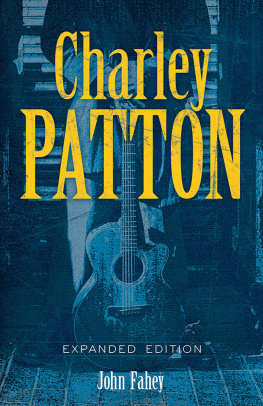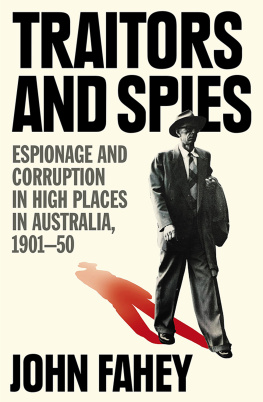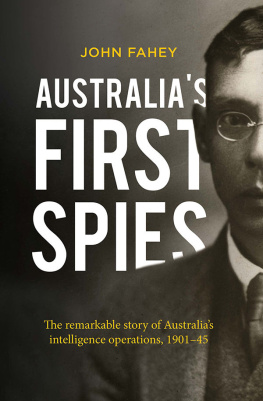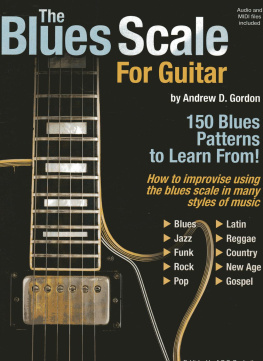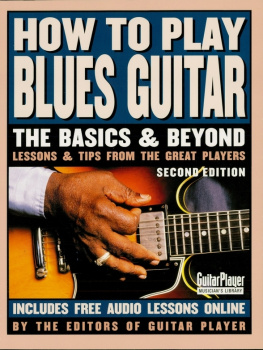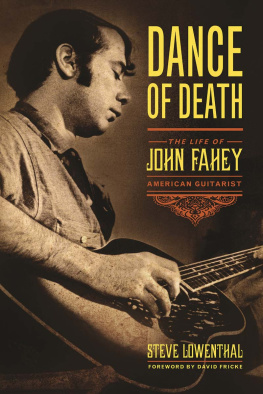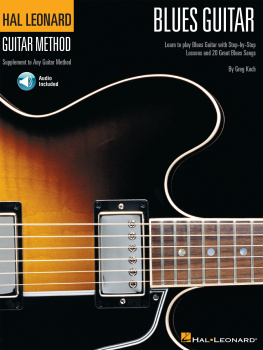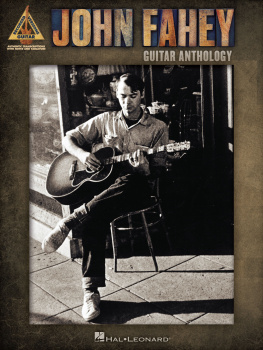
Copyright
Copyright 2001 by Revenant LLC,
by special arrangement with John Fahey
All rights reserved.
Bibliographical Note
This Dover edition, first published in 2020, is an unabridged republication of the work originally published in 1970 by Studio Vista Limited, London. All illustrations are from the collections of the author, the series editor, and private collectors. A retrospective by the author, Charley Reconsidered, Thirty-Five Years On, originally published in Screamin and Hollerin the Blues: The Worlds of Charley Patton, a CD box set from 2001, has been added to this edition.
Library of Congress Cataloging-in-Publication Data
Names: Fahey, John, 19392001, author.
Title: Charley Patton / John Fahey.
Description: Expanded edition. | Mineola, New York : Dover Publications, Inc., 2020. | Includes bibliographical references. | Summary: Noted guitarist John Fahey presents a textual and musicological examination of the music of blues legend Charley Patton. This new edition is enhanced by Faheys notes from the Grammy-winning, out-of-print box set, Screamin and Hollerin the Blues: The Worlds of Charley Patton. Available for the first time outside the set, Faheys reconsideration on Pattons music offers fresh perspectives and corrects the historical record in key spotsProvided by publisher.
Identifiers: LCCN 2020000860 | ISBN 9780486843445 (trade paperback)
Subjects: LCSH: Patton, Charley, 18911934Criticism and interpretation. | Blues (Music)History and criticism.
Classification: LCC ML420.P323 F25 2020 | DDC 781.643092 [B]dc23
LC record available at https://lccn.loc.gov/2020000860
Manufactured in the United States by LSC Communications
84344001
www.doverpublications.com
2 4 6 8 10 9 7 5 3 1
2020
CONTENTS
INTRODUCTION
G eologically speaking, the Yazoo River Basin region of northeastern Mississippi lies on both sides of the Yazoo and Tallahatchie Rivers. It is roughly triangular with its apex at Marked Tree, Arkansas. A straight line drawn from there to Durant, Mississippi, forms its eastern border. A straight line drawn from Durant to Vicksburg, Mississippi, forms its southern border. On the west it is bounded by the hills which parallel the Mississippi River on the Arkansas side, from Vicksburg to Marked Tree, Arkansas. The local name for the region is the Delta or the Mississippi Delta, which should not be confused with the geologically accurate name of the Delta, applied to the terminus of the Mississippi River at the Gulf of Mexico. The Yazoo River Basin will be referred to, occasionally, as the Delta.
Charley Patton is remembered throughout the Yazoo River Basin of Mississippi and eastern Arkansas as having been during his lifetime the most popular local guitar-playing songster and blues-singer of that region. A blues-singer is simply one who sings blues. (Since an attempt to define blues forms an important part of this study, the term must remain undefined for the present.) There were many popular blues singers in the Delta, such as Eddie Son House, who spent much of his early musical life with Patton and was greatly influenced by him; Ishmon Bracey (d. 1970), at first a singer of blues, then a preacher, who spent his entire life in Jackson, Mississippi, but knew Patton, and played with him on occasion when Patton came to Jackson; or Willie Brown, a friend of both House and Patton, with whom he sang and played, who died in about 1958, after spending most of his life in the Mississippi Delta. Patton is remembered as a songster because, unlike his local competitors such as Son House, Ishmon Bracey, Willie Brown, Skip James and others, who knew few songs other than blues-songs and religious songs, Patton had a large repertoire of blues-ballads, ragtime pieces, and songs derived from either white popular or rural white traditions.
Blues-ballads are loose, shifting, and subjective narrative songs which celebrate and comment upon events rather than describe them in a straightforward, journalistic manner. Emotional reactions to events are indicated. Blues-ballads are lyrical and they make use of repetitions, clichs, commonplaces, contrasts, and refrains. They are usually collected from blacks rather than from whites, and many of them evolve through a long process of communal recreation (using the term loosely) among black people. When collected from whites, black influence can usually be demonstrated. The term ragtime will not be used to denote any songs which are of the classical form, apparently invented by Scott Joplin. For a discussion of this form see the chapter The Rise of Ragtime in Gilbert Chases book, Americas Music. In this study, ragtime will refer to songs which are textually composed of nonsense stanzas or stanzas referring humorously to sexual matters. Musically, they are characterised by a quick tempo, frequent chord changes in the guitar accompaniment, and melodies which are either chromatically constructed, or are gapped versions of the Ionian mode, containing frequent major sevenths, rather than minor sevenths.
Charley Patton has been dead for more than 30 years, yet his name is readily recalled by many Mississippi blacks and some whites. His musical influence, in one way or another, lives on to this day in the recordings and performances of such recently popular blues-singers as Howlin Wolf (whom Patton taught to play the guitar), Lightnin Hopkins (who is known to sing stanzas from Banty Rooster Blues, which he probably learned by listening to one of Pattons recordings of that song), John Lee Hooker (who knew Patton and also sings some of his stanzas), and others.
Between 14 June 1929, and 1 February 1934, Patton made at least 52 issued commercial recordings. Of these, all but six sides (three records) have been made available for analysis. [But see ]. His recorded repertoire represents a very good sample of what southern black songsters and blues-singers were performing between 1915 and 1934, the period during which Patton was an active entertainer. There are blues, spirituals and other religious songs, blues-ballads, folksongs, and even a few songs probably of Tin Pan Alley origin.
These recordings stand as a valuable social document. If the only source material for black music that we had was the printed collections of Work, Allen, Ware, Garrison, and others, we should have but a small fraction of the source material that is available to us. If, in addition, we had the testimony of people who remember Patton and singers like him, but ignored the possibilities inherent in analysing commercial recordings, we should be overlooking an extremely fruitful job of sampling, done inadvertently by commercial recording companies.
It is true that the folk-artist in a recording studio, isolated from the audience to which he is accustomed, is in an artificial situation. The artist is told to make as few mistakes as possible, to watch for the red light on the wall since his performance can last no more than four minutes. He is told that he will be paid, but that he will be paid per accepted selections only. For example, Mississippi John Hurt, a songster from Carroll County, Mississippi, was told in a letter from T. G. Rockwell, Recording Director of the General Phonograph Company (OKeh), dated 8 November 1928: If it is possible for you to make arrangements to get away from Avalon for a week and come to New York for recording, we will pay you $20.00 per accepted selection and all your expenses to New York and return for this work. All this increases the artificiality of the situation.
This critique is especially applicable to most of those race recordings of female singers accompanied by groups of jazz instrumentalists. And the majority of early race recordings (between 1923 and 1926) were of this nature. The term race record was used by most of the major record companies to denote those records of black artists designed primarily for black consumption. It was not used for recordings of black artists such as the Fisk University Jubilee Singers, designed for the white market, because this group performed in European musical style almost totally devoid of indigenous black stylistic characteristics. Race records were generally sold only in stores in segregated black areas. A survey of three race record catalogues by Howard W. Odum and Guy B. Johnson in 1926 revealed that among the blues singers who have gained a more or less national recognition there is scarcely a mans name to be found. Odum and Johnson, realising that these recordings were to a great extent contrived and were not a good sampling of what they termed folk blues, referred to them rather as recordings of formal blues. This distinction between folk and formal blues was perfectly valid for the year 1926. Had they performed a similar survey in 1929, they would have found that their distinction between the two kinds of blues was no longer very useful.
Next page
